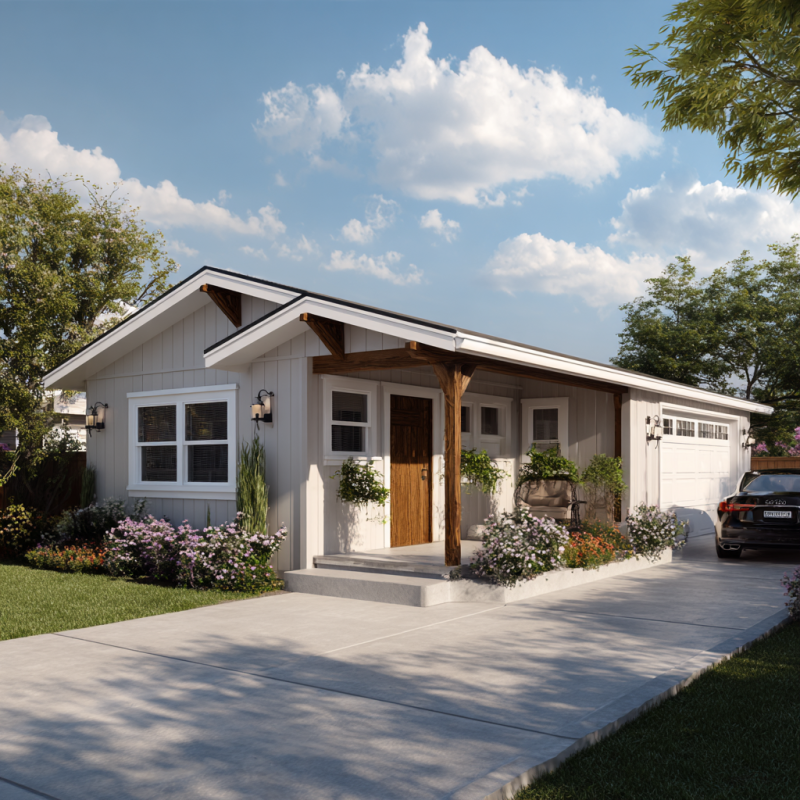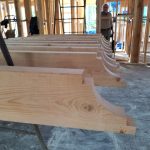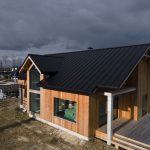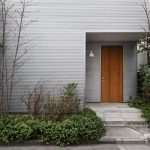
Which areas in Pleasant Hill allow in-law units
Understanding which areas in Pleasant Hill allow in-law units
An in‑law unit (or accessory dwelling unit, ADU) is a smart way to expand your Pleasant Hill home. Whether for extra living space or rental income, knowing which areas in Pleasant Hill allow in‑law units is essential. While public maps of eligible neighborhoods are limited, many single-family residential zones may qualify if regulations are met. Check zoning rules, property size limits, and permit requirements through city resources or a reliable local contractor. Understanding the approval process, potential zoning considerations, and working with a trusted Pleasant Hill construction team ensures your project runs smoothly and meets legal standards.
Review local zoning profiles
In Pleasant Hill, local zoning often determines whether your property can host an in‑law unit. The city usually designates residential areas with specific codes (R‑1, R‑2, etc.), which define what kinds of additional structures homeowners can build.
- Check official city resources: Start with the Pleasant Hill Planning Division or related city department to confirm the exact codes.
- Note square-footage limits: Your in‑law unit may need to stay within a certain size relative to your existing home.
- Verify lot coverage rule: The city typically sets a maximum percentage of your property that you can build upon.
Feeling overwhelmed by in‑law unit details is normal, but local contractors can help. Mazzamuto Construction, serving Martinez since 1960, guides homeowners through codes, ensuring projects like home additions or self-contained in‑law suites meet every requirement.
Understand the permit process
Once you confirm that your property’s zoning supports an in‑law unit, the next step usually involves obtaining permits. Expect to work with both city officials and your local construction team to ensure accurate paperwork.
- Contact the city planning office: Ask about all necessary forms and fees for building an in‑law unit.
- Gather essential documents: Typical requirements include a site plan, blueprints, and any architectural drawings.
- Submit your application: Plan for a wait time that can range from a few weeks to a couple of months, depending on city workload.
- Schedule inspections: The city will send an inspector at key intervals, such as when the foundation is poured or electrical wiring is installed.
A professional contractor ensures your plans meet local codes, and if upgrading other areas simultaneously, combining projects like a whole house remodel in Pleasant Hill can streamline permits and save time.
Plan your in‑law unit design
Designing an in‑law unit balances privacy with proximity, providing a self-contained space with a bathroom, kitchen or kitchenette, and entrance while complementing your main home. Tips include:
- Place utilities carefully for water, power, and HVAC connections.
- Keep it accessible with single-level layouts, wider doorways, and bathroom grab bars.
- Reflect your style with exterior finishes that match your home.
Mazzamuto Construction ensures quality craftsmanship, code compliance, and durable, neutral materials for Pleasant Hill homeowners.
Consider working with a local contractor
While small updates can be DIY-friendly, full in‑law units usually require professional help with plumbing, electrical, and structural work. A local contractor makes a difference:
- Knowledge of Pleasant Hill regulations, reducing permit delays.
- Strong community ties, easing coordination with suppliers and inspectors.
- Proven craftsmanship, ensuring long-lasting results.
Expanding or remodeling may include bathrooms or kitchens, and exploring an in‑law unit in Pleasant Hill helps align projects with your long-term vision.
Evaluate location considerations
Because official data on which areas in Pleasant Hill allow in‑law units is limited, consider location carefully:
- Proximity to property lines, following setback rules.
- Parking requirements, which may demand an extra off-street space.
- Fire safety, using fire-resistant materials and sprinklers if near hills or open space.
These factors influence unit size and placement. Smaller lots may suit garage conversions or attached suites, and in some cases, pursuing an ADU in Pleasant Hill is the best approach for a second dwelling.
Budget for your in‑law unit
Planning financially for your in‑law unit is as important as the layout. Key budget categories include:
- Design and planning fees for architects or custom plans.
- City fees for permits, surveys, or impact studies.
- Construction costs cover foundation, framing, roofing, utilities, and finishes.
- Contingency of 10 to 15% for unexpected expenses.
Small cookspaces and bathrooms can vary in cost, so reviewing estimates helps homeowners understand how expansions influence budgets and what does a home addition cost in Pleasant Hill.
Integrate sustainability
For homeowners prioritizing sustainability, consider these green approaches for your in‑law unit:
- Opt for eco-friendly materials like recycled metal roofing or low‑VOC paints.
- Insulate thoroughly to lower energy bills and maintain comfort.
- Add efficient fixtures, such as water-saving faucets and LED lighting.
- Plan for solar compatibility during design.
Mazzamuto Construction supports sustainable building using local suppliers, reducing the carbon footprint, and helping Pleasant Hill balance growth with environmental responsibility.
Explore multi-generational living benefits
An in‑law unit can expand your options in multiple ways:
- Housing older parents. They enjoy nearby family, yet have privacy.
- Adult children returning home. Offer independence while they transition to careers.
- Rental income. Generate extra revenue in high-demand areas.
- Future flexibility. Convert the unit into a home office, studio, or guest suite.
Mazzamuto Construction, serving since 1960, has seen how multi-generational setups enrich family life and boost property value, helping homeowners understand why in‑law units are popular in Pleasant Hill.
Discover Which areas in Pleasant Hill allow in-law units
Ultimately, which areas in Pleasant Hill allow in‑law units depends on zoning rules, neighborhood guidelines, and lot-specific conditions. While no official citywide list identifies every street, many homeowners can secure approval by following codes, setbacks, and design standards. Consult the city planning office and work with an experienced local contractor. Understanding lot coverage, design requirements, and finishes ensures a compliant and functional space. With careful planning, professional guidance, and patience, you can create an in‑law unit that enhances your home’s value and usability. Mazzamuto Construction has proudly helped nearby communities, turning additions into long-term home possibilities.
Ready to Plan Your Remodel with Confidence?
Mazzamuto Construction has delivered trusted, high-quality renovations for over 60 years. Know exactly how much a professional remodeler costs with no guesswork. Schedule Your Consultation Today!
Frequently asked questions
1. How to convert space into an in‑law unit in Pleasant Hill?
You can convert space by checking zoning rules, obtaining permits, and designing a compliant, functional ADU.
2. Why are in‑law units popular in Pleasant Hill?
They are popular because they provide extra living space, flexible housing options, and potential rental income.
3. Can I convert my garage into an in‑law unit?
Yes, converting a garage is a frequent choice for homeowners in Pleasant Hill. However, you must follow local building codes, parking mandates, and structural requirements to ensure safety and compliance.
4. Will adding an in‑law unit increase my property taxes?
Yes, your property taxes typically increase if you add permitted living space. The exact amount depends on how much value the county assessor attributes to the new structure. Checking with the county assessor’s office will give you a clearer picture of potential changes.
5. How long does it take to build an in‑law unit?
Depending on project complexity, the timeline usually ranges from three to six months, and this takes into account design, permitting, construction, and final inspections. When you work with an established contractor, they can help you streamline the process and reduce delays.
6. Is there a size limit for an in‑law unit?
Many local codes require your ADU or in‑law unit to remain below a certain square footage, often around 800 to 1,200 square feet. The exact limit in Pleasant Hill may vary based on zoning and property size, so check with city officials.
7. Can I rent out my in‑law unit if I no longer need it for my family?
Yes, renting is usually allowed once you meet all city regulations, but you should verify any local restrictions, especially those related to short-term rentals or homeowner association rules.
Key takeaway
- Verify zoning codes early: The very first step is checking whether your parcel allows an in‑law unit under Pleasant Hill’s regulations.
- Budget carefully: Building an in‑law unit involves design costs, permits, construction expenses, and contingency funds.
- Work with specialists: A local contractor experienced with Pleasant Hill requirements can streamline approvals and quality control.
- Aim for sustainable solutions: Opt for eco-friendly materials and energy-saving fixtures for long-term benefits.
- Plan for future use: An in‑law unit can adapt as family needs change, whether for multi-generational living or potential rental income.




